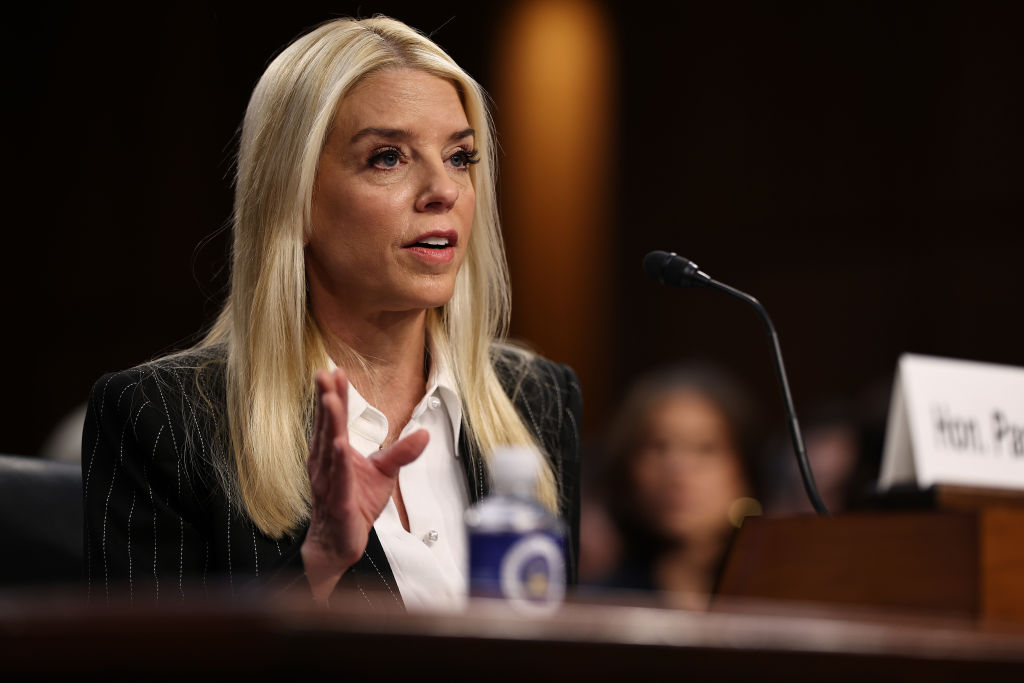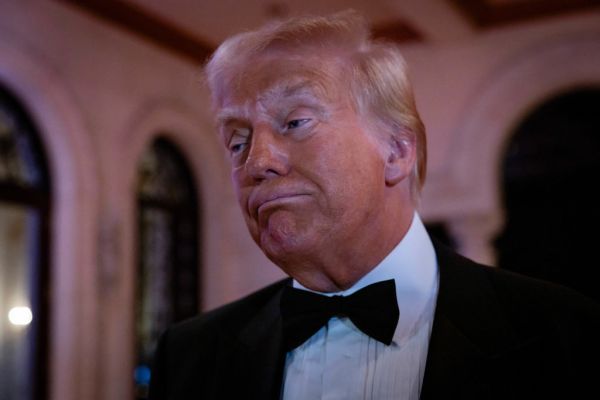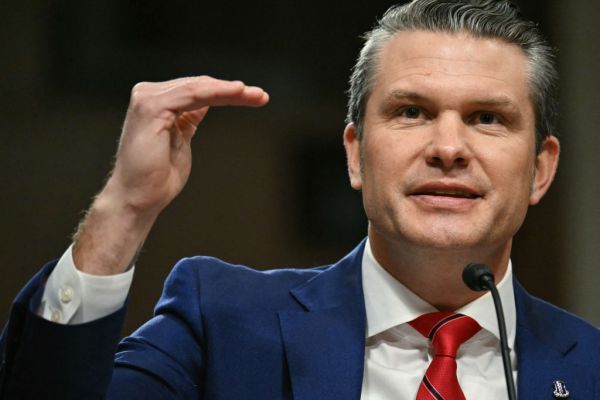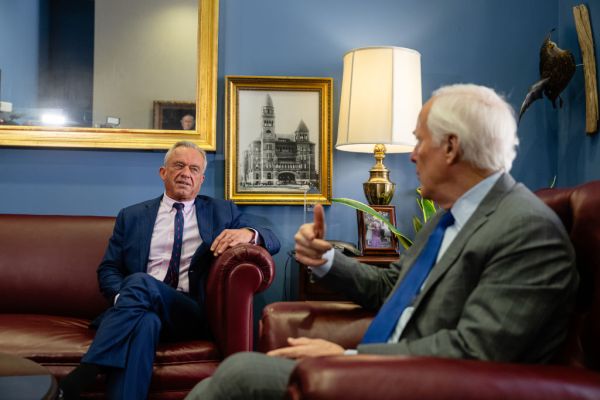In Senate committee hearings this week, President-elect Donald Trump’s selections for Cabinet positions spoke authoritatively on culture war issues like curtailing DEI initiatives and ending the “politicization” and “weaponization” of the federal government. But when faced with questions about certain matters of policy, nominees had to make a decision: Which of Trump’s positions should they support?
With the president-elect’s penchant for shifting policy positions, keeping up with Trump’s latest stances occasionally proved a challenge for many of those seeking Senate confirmation to lead executive branch agencies. Some relied on vague answers to muddle through questions; others even appeared to contradict some of Trump’s rhetoric.
One such example is the war in Ukraine, which Trump has said needs to end but has not been clear how. He has declared that the beleaguered nation’s survival is “important to us,” but he has also declined to say whether he wants Ukraine to win and has criticized the amount of aid America is giving the war-torn country. As a result, defense secretary nominee Pete Hegseth’s answer to the Armed Services Committee did not fit neatly with Trump’s public statements.
“That’s a presidential-level policy decision,” he told the panel when asked what the administration’s posture toward the war would be. “[Trump has] made it very clear that he would like to see an end to that conflict. We know who the aggressor is. We know who the good guy is. We’d like to see it as advantageous for the Ukrainians as possible, but that war needs to come to an end.”
Hegseth was one of several nominees to be tasked with explaining what exactly the soon-to-be president believes on certain issues. The transition team already seems to be hedging on the relationship between officials and Trump, as incoming Chief of Staff Susie Wiles in a memo last month told members of the next administration that they do not speak for the chief executive, according to the New York Times. After a first term filled with tumult and turnover due to disagreements with members of his Cabinet, Trump’s second-term picks have tried to steer clear of making declarations about many important policy areas the administration will have to tackle, either to avoid appearing out-of-step with the president-elect or to give the him wiggle room to settle on a course of action once he takes office.
Russell Vought, Trump’s pick to lead the Office of Management and Budget and a social conservative who was one of the architects of the Heritage Foundation’s Project 2025 policy blueprint, seemed to evade questions about abortion in front of the Senate Committee on Homeland Security and Governmental Affairs. Republican Sen. Josh Hawley of Missouri asked Vought whether he supported the reimplementation of pro-life policies from Trump’s first term, such as not allowing abortion providers to receive funds under a federal family planning grant program and prohibiting nongovernmental organizations receiving federal funds from promoting or performing abortions overseas. Vought did not commit to reinstating them.
“The president has made his views on abortion really clear throughout the campaign,” Vought said. “I’m not going to get ahead of the president with regard to the budget process. We have submitted budgets in years past that give the Senate a sense of how he would budget, but I’m not going to get ahead of the president on that.”
Though his first term featured strong anti-abortion policies and rhetoric, Trump backtracked during the campaign and has given little assurance that he would reimplement the measures Hawley named.
The vagueness of Vought’s responses was not lost on Sen. James Lankford, a pro-life senator from Oklahoma who sits on the committee.
“He just said, ‘I’m going to do what President Trump wants to do,’ which is the same thing that [Robert F. Kennedy Jr.] has said, as well,” Lankford told The Dispatch. “We would think it’d be very clear. Russ is personally very pro-life, and he’s been very outspoken on that. We were all a little surprised, but I understand he works at the pleasure of the president.”
Trump’s nominee for attorney general, Pam Bondi, faced questions about enforcing the 2024 legislation that would compel TikTok’s Chinese-owned parent company to divest from the app or see it banned in the United States. Under questioning from Democratic Sen. Richard Blumenthal of Connecticut, Bondi referred to the fact that the Supreme Court has not yet ruled on the company’s appeal attempting to stop the law on First Amendment grounds.
“This is pending litigation within the Department of Justice, and I can’t talk about that at all,” she told the Senate Judiciary Committee, adding that, “in general,” she would defend U.S. laws in court.
While Trump sought to ban TikTok in his first term, he has since changed his position, searching for ways to save it once he takes office. He has attributed a measure of his electoral success with young people to his popularity on the app, and invited TikTok’s CEO to attend his inauguration.
One nominee plainly appeared to contradict Trump during a hearing. John Ratcliffe, the president-elect’s pick to lead the CIA, spoke positively about Section 702 of the Foreign Intelligence Surveillance Act (FISA), which allows the federal government to surveil foreign nationals without a warrant and will be up for renewal in 2026. Critics have argued that the statute needs reform since agencies can use it to peek at communications from Americans who talk to people abroad who are being surveilled.
Nevertheless, Ratcliffe told the Senate Intelligence Committee that renewing the authority is critical. “It’s indispensable, and, for critics of it, no one has offered a replacement,” Ratcliffe said in response to questions from Republican Sen. Mike Rounds of South Dakota. “If, for instance, half of the actionable foreign intelligence comes from FISA 702, what are we going to replace that with? And the critics haven’t provided any alternative to that.”
As House Speaker Mike Johnson was battling with Republican hardliners over renewing the law last year, Trump dropped a bomb into the negotiations, calling on legislators to “KILL FISA,” which “WAS ILLEGALLY USED AGAINST ME, AND MANY OTHERS.” (Federal authorities did use FISA applications to surveil a 2016 campaign operative, but they did so under a different provision of the law.)
Rounds, however, insisted that Ratcliffe did not set himself against Trump. “I think what they were talking about in a lot of cases was a FISA 702 that had not been amended or changed, and we made significant changes to the original FISA 702 provisions that provide for a lot more protection than what they did before,” he told The Dispatch. “So I think we’ll be okay, and besides that, I think once the president realizes that—if he doesn’t already, I think he will—anywhere from 50 to 90 percent of his daily brief comes from a FISA collection.”










Please note that we at The Dispatch hold ourselves, our work, and our commenters to a higher standard than other places on the internet. We welcome comments that foster genuine debate or discussion—including comments critical of us or our work—but responses that include ad hominem attacks on fellow Dispatch members or are intended to stoke fear and anger may be moderated.
With your membership, you only have the ability to comment on The Morning Dispatch articles. Consider upgrading to join the conversation everywhere.